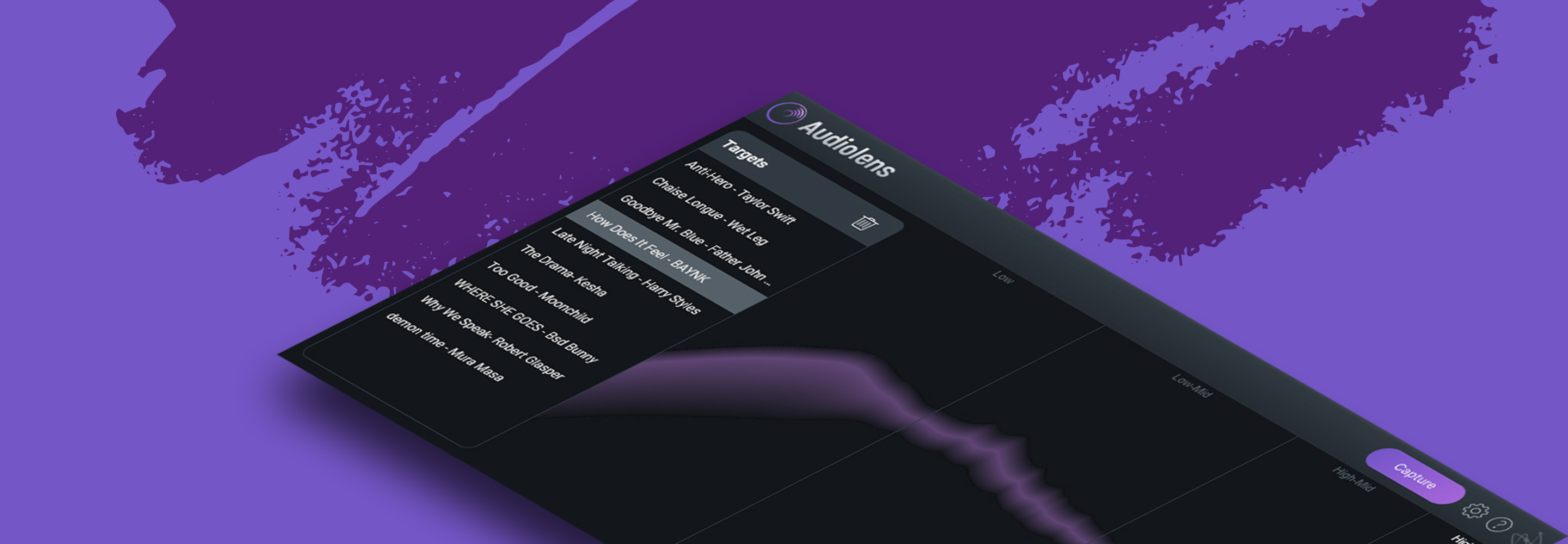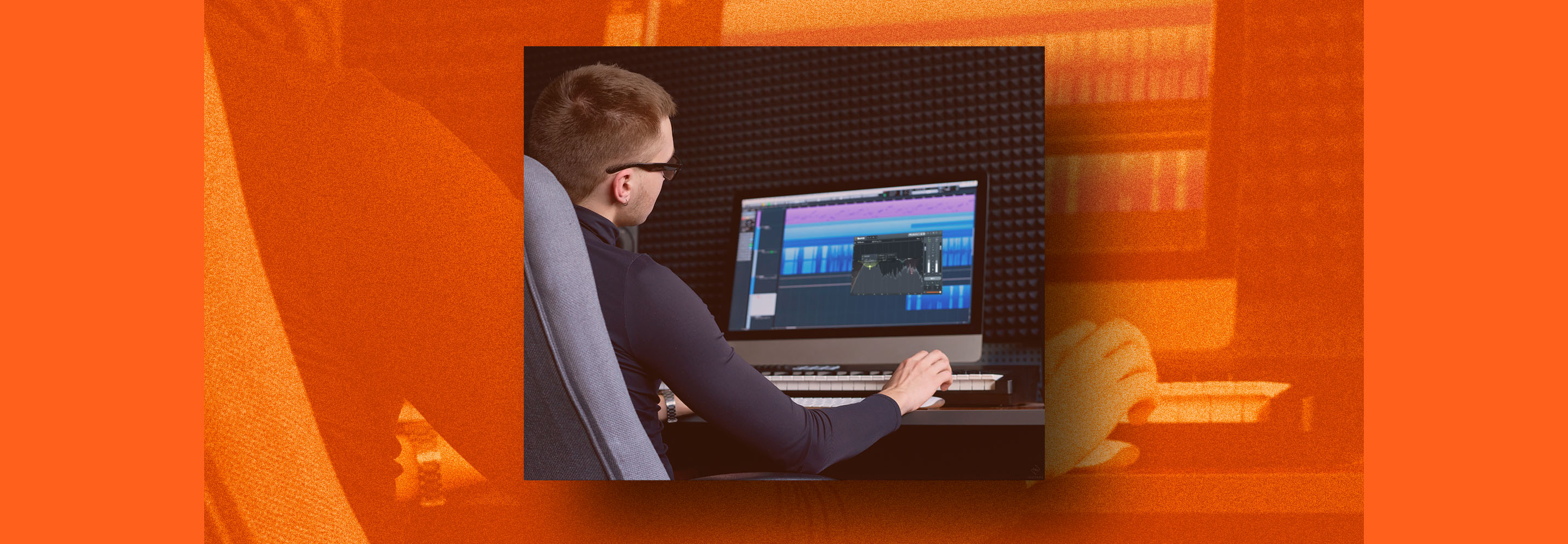
10 Tips to Fix Your Mixing Mindset
Your mindset when mixing music is as important as your toolset. In this article, learn how to get great results in your productions, mixes, and mastering projects without using any software or hardware.
Whether you're producing, mixing, or mastering music, your mindset is as important as your tool set. You might have the greatest gear and the best room, but how you show up to perform the work matters if you want to make an impact in your productions.
We tend to take for granted things like our hearing and our mental health. And if those things are compromised, all the plugins and gear ever made won't help you. So in this article, let's talk about techniques to get great results without using any gear. It's all about mindset.
1. Your mood affects your work
Operating a vehicle when you're angry, tired or distracted can lead to bad, if not dangerous outcomes. The same is true of music production. Our moods can affect what and how we hear in the studio. Mixing angry might cause you to cut corners and miss opportunities to highlight great moments. Mixing when you're distracted might cause you to overlook anomalies and imperfections that you should address before sending the draft to the client.
Unlike operating a vehicle, the stakes are lower if you're behind the wheel of your DAW, but it's still important to bring your best self to the work. Clear your mind, make sure you've had enough to eat, and switch the phone to silent mode before digging into your work. When you're level headed and focused you can create the conditions for entering into a flow state where you can be creative, attentive and present in the work at hand.
2. Love your ears
No one loves music more than the people who create, mix, and master it, and listening to a lot of different kinds of music is a very important thing to do if you want to be successful in your music production. But how long and how loud you listen to music can have consequences on your hearing. Going to shows without earplugs, performing music without hearing protection, even casually listening to music at top volume for a long time can cause lasting damage to your ears.
Some people suffer from tinnitus, or tinnitus. This is when you experience ringing or other noises in one or both of your ears. And did you know that anti-inflammatory medication can sometimes exacerbate that ringing effect? Now this is by no means a medical advice tutorial, but suffice to say, if you want a career in audio you need to treat these money makers with respect. Just like exercise and eating habits, it's really important to discover healthy habits and routines early in life so that you carry them with you into your later years.
3. Let people into your mixing session
Getting outside feedback on your work is critical, and at iZotope, we make tools like Tonal Balance Control and Insight, even the spectrogram in RX will help you visualize what might be going wrong in your mix or master and give you a chance to fix it.
Now what those tools can't tell you yet is if your snare isn't making an impact, or if your vocal is too thin against the arrangement. If you're on the fence about your work try this trick. Bring someone else into the room. Now they could be an expert or just a warm body. Thing is something strange happens when you do this. You suddenly hear the mix through this other person. Their presence gives you a chance to develop objectivity and you'll hear things that you didn't hear before.
Keep a notepad when this happens as it's easy to forget all the stuff that you want to address after this good samaritan has left the room. There's no name for this phenomenon yet!
4. Avoid the monitor
Let's face it. We spend most of our lives staring at a screen. Big ones, small ones, there's almost no escape. Video editors can't help but watch their work unfold in real time across pixels. It's a visual gig. But why do we let screens take up so much of our attention in audio production?
As someone who dabbles in composing for media, believe me, there's nothing more uninspiring than staring into a glowing box when I'm trying to get a track off the ground. What's interesting is that if you look back into the history of audio production, screens are a relatively new addition to the core tech required to make music. DJs moved crowds without them for a long time. Tracking and mix engineers only had a console plus what was coming out of the phantom center of their loudspeakers to inform their decisions.
Don't get me wrong, screens are here to stay, and visual tools again like Insight, RX, and Tonal Balance Control help you confirm visually what you're hearing in the moment. But screens can also shift attention away from how the music feels at a visceral level. So try to turn the computer monitor off when you're mixing here and there and take your hand off the mouse, the ball, the trackpad and just listen back to what you hear when you can't see the waveforms. Powering down your eyes could give your ears a better shot at finding new opportunities to make a change for the better in a mix.
5. Treat everything you're working on like it's the most amazing thing
Maybe you want to be mixing top 40 records, but for the moment, you're stuck on hour seven of mixing drums for your bud’s band.
The truth is, even top mix and mastering engineers are really only ever as good as their last project. So pour everything you have into the current project, even if it isn't the next viral hit, because when you do get your shot, you'll know what to do because you've been operating at that level from the very start.
Not only will this help you build a reputation in the music industry for delivering an incredible product, it'll also set you apart from others who might not be taking the work as seriously and with as much passion as you do. In an industry as saturated with freelancers as the music industry, you should be doing everything you can to set yourself apart.
6. Schedule when you work
It's really important to create healthy routines and maintain even a semblance of work-life balance. Penciling in two hours a day or so to mix, master, or create music will give you structure and space to work on nothing but music.
For some, inspiration cannot be scheduled or you need to mix something quick because the last engineer got sick. So it's okay to make allowances for variability. But scheduling time to work on music will do the following: It'll create accountability so that if you know you're supposed to be mixing from seven to nine and you don't you feel like you wasted a day because all the other hours are spoken for and you missed your chance to mix.
Also humans, for the most part, like stability. We crave some kind of structure. Multitasking, being in four zoom rooms while keeping a group chat alive, we're not really great at it. So try to be accountable for yourself and set time aside when you need to get music done.
7. Ignore your work temporarily
It's really important to temporarily abandon your work, especially if you're running up against problems creatively instead of forcing yourself to power through songwriting, mixing, or mastering challenges.
Get some space between yourself and the song. Go for a walk, play a video game, do anything to reset your mind so that when you come back to the work you can hear it from a fresh perspective. There's no shame in stepping away from something that is not working. You'll give your ears a chance to rest and be able to re approach the challenge with a new attitude.
8. Recreate the listener's experience
It's so critical to recreate the listening experiences of your audience when you're mixing or mastering your music. You probably have Airpods or headphones. That's how your listeners will be playing your track back for the most part.
You probably have access to a car. That's another place your track will be listened to.
Try to empathize with your listeners by putting yourself in their ears if that makes sense. By doing this, you'll understand if the mix is working or not especially in the low and high end. This is because manufacturers of consumer electronics, like headphones and car speakers, put their own spin on how the sound comes out of their gear. Now lots of companies out there create virtual environments in which to audition your audio, but there's nothing quite like the real thing.
I should also mention that a tonally balanced mix is going to stand a great chance of translating, this means sounding great, across all kinds of playback devices. Which is exactly why we invented Tonal Balance Control to help you achieve a tonally balanced mix or master.
9. Know more, work faster
Many of us update our software and tools only to revert right back to the exact same way that we use them before they were on that new version. It could be that something that took you eight clicks now takes you just two, but you didn't take the time to read the version notes from the update so you're stuck in the past, wasting time.
Here at iZotope we're always trying to find ways to speed up your workflow, often with assistive technology like Repair Assistant in RX or Master Assistant in Ozone. But just the same, digital audio workstations are always updating with new features and workflows to cut down the time it takes you to do stuff like automation, template creation, busing, routing and more.
If you're a Logic Pro user, for example, I'd recommend you check out a channel on youtube called Why Logic Pro Rules. It's a great way to stay up to date with how that workstation is evolving. Similarly, Pro Tools Expert is a great place to keep up with all the changes in that DAW.
If you're an iZotope user check out the videos we've done called 10 Hidden Features. We've done a few of these videos for


Ozone Advanced


Neutron
And you should also check out From Scratch. This is a video series where we dive through every parameter in a tool so that you feel like you can be successful with it. A small time investment in learning about all the features of the tech can yield big savings in time when you're working on your next track.
10. Put into practice the things you learn
How many of us have visited a museum or gone on a guided tour and a week later when someone asks us what did you learn? We go “I don't know.”
Knowledge persists through understanding. It's not enough just to know stuff, you have to put it into practice to really understand and remember it. So please, do watch the tutorials we've made like Are You Listening? or "How to Mix Music."
It's important to note that the principles need to be put into practice in your own work. It's not enough just to blow through a YouTube educational playlist. Learning is good, but it's only in doing that you get better and understand.


